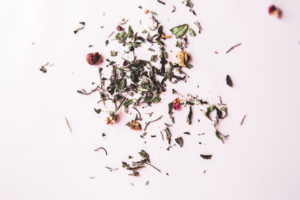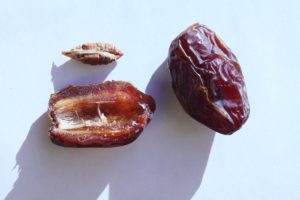Welcome to
the Blog
Replete Wellness
RW
Herbs for Labor

FYI – birthing women in North America have one of the highest chances of encountering medications and additional medical procedures during labor. They are the most likely to receive medications for induction of labor and it’s estimated that 1/3 Canadian births come in the form of a cesarian section surgery. These life-saving interventions are often necessary (and thank goodness we have access to them), but each of these inventions also carries a higher risk of unintended consequences to both mother and baby. Each additional medical procedure added to the birth process increases rates of hemorrhage, organ damage, infection, blood clots and adverse reactions in the baby.
While birth comes with a certain amount of ‘surrendering to the universe’ there are still things you can do to try and avoid unnecessary medical procedures. A meta-analysis of all the available research on herbal medicine + labor showed that users of herbal medicine for induction of labor were significantly more likely to give birth within 24 hours than non-users, thereby decreasing the number of medical interventions included in the birth process. There is some good science (not to mention thousands of years of traditional use, research is cool but it’s still important to learn from the experience of millions of birthing women, midwives & traditional healers) on a few herbal remedies for pregnancy patients hoping to induce quick + safe labor. Adding these safe and natural remedies can help give you that little bit of extra assurance that you’re doing everything possible to help your body get ready for birth;
Red raspberry leaf;
This herb has centuries of documented use in the support to support a healthy pregnancy and to ‘prepare’ the uterus for childbirth. It provides the minerals that the uterus needs to relax (hello magnesium, potassium + calcium) and is rich in a plant compound called fragarine, which stimulates uterine muscle contraction. A recent study found that taking raspberry leaf was associated with:
- Decreased likelihood of preterm labor
- Decreased likelihood of going past a due date
- Lower overall rates of caesarean section
- Lower need for forceps or vacuum extraction during delivery
As little as one of two cups of red raspberry leaf tea from week 37 onwards is generally safe in uncomplicated pregnancies. We love a combination of pregnancy safe chamomile, peppermint and nettle to make red raspberry leaf tea more palatable (as a bonus it can help with end of pregnancy heart burn symptoms).
Dates;
(the food, not the pre-baby romantic solo evening with your partner)
As little as 3 – 6 dates daily eaten during the 4 weeks prior to expected birth date has been shown to improve cervical dilation and leads to an easier labor. In one study, date eaters were significantly more likely to go into labor without medication induction and had a decreased the total time of labor by 50%. Another small but well designed study found that eating dates in the later stages of pregnancy led to less bleeding immediately after birth.
Three scientific studies have shown that red dates are associated with:
- Increased cervical “ripening”
- Less need for labor induction
- Less need for Pitocin to stimulate labor and greater likelihood of induction working if medication was still needed.

Bonus Herbs;
These herbs are a little more ‘controversial’ but have been used safely by midwives and herbalists for hundreds of year to support labor & delivery. While these herbs may be a part of your birth support kit we recommend that you only use them under the supervision of your naturopathic doctor or midwife.
- Mother’s cordial: this traditional formula supports healthy uterine function during the final weeks of pregnancy. It includes the following herbs, generally in equal parts; Mitchella repens (partridge berry), Caulophyllum thalictroides (blue cohosh), Viburnum opulus (cramp bark), and Chamaelirium luteum (false unicorn).
- Cimicifuga racemosa (black cohosh); used for irregular contractions of labour, this herb can help make contractions more regular and reduces pain. It’s typically dosed after the head is birthed to ensure optimal contractions during the final stages of labor.


+ COMMENTS